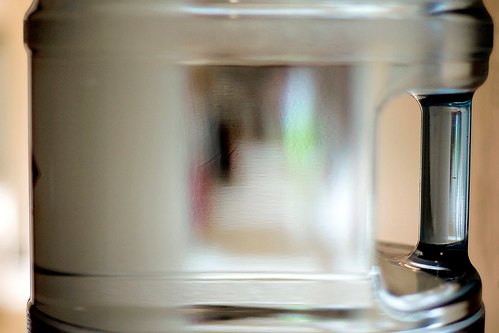Chicago's Suburbs Have Lead In Their Water, Too
By Sophie Lucido Johnson in News on May 13, 2016 8:51PM
It might be wise to invest in a water filter: About a dozen water systems in the Chicago area have exceeded the EPA lead standard twice or more since 2004, according to a Chicago Tribune analysis.
In Cook County, Berwyn and Forest View were the most affected municipalities. Other affected areas include York Township in DuPage County, Barrington and Volo in Lake County, and Marengo and Richmond in McHenry County. You can see the affected cities throughout the state laid out on a Tribune map here.
Local officials are not required to notify homeowners or take other action unless a water system continues to exceed the standard during a full testing cycle. Cycles can last up to three years. In other words, people may be told that their water is safe, even if their systems contain high levels of lead for years on end. It can be cheaper to keep citizens in the dark about their lead levels; removing lead service lines is extremely time-consuming and costly.
In water systems the analysis calls out as high in lead, more than 15 parts per billion of lead were found in the tap water of at least 10 percent of tested households. Lead contaminates drinking water after it leaves a treatment plant and passes through lead service lines and lead plumbing inside homes. Illinois is especially at risk of contamination, with more lead service lines than any other U.S. state.
Chicago itself hasn't exceeded the lead action level since 1992. However, that may because there isn't much data about lead levels in the city proper, which is a problem in itself. The city tests 50 houses every three years, which isn't very rigorous, especially given that no other U.S. city has more lead service lines.
Any house built before 1986 may have a lead service line, and should be tested for lead. Most water systems put anti-corrosive chemicals inside pipes to reduce lead exposure—a treatment officials in Flint stopped to cut costs. A study done by the EPA in 2013 found that Chicago's street work and plumbing changes disrupted this protective coating, particularly in areas where the water main was replaced under the street. The replacement of water pipes has been accelerated by Mayor Rahm Emanuel, who prefers the work get done fast, despite the potential health risks.
After the criminal disaster in Flint, Mich., the EPA is stressing the importance of more frequent testing, and is urging local officials to be more diligent about providing consumer warnings. The EPA recently stated that there is no safe level of exposure to lead. Even small doses can cause permanent brain damage to a child, and can increase blood pressure in adults. The EPA also said that any home where lead levels are over 15 parts per billion should receive bottled water or water filters from the city.
Democratic Senator Dick Durbin has loudly criticized the EPA's response in Flint, and spoken at length about his concerns that Illinois and cities across the country will face similar problems. In a letter to the EPA, Durbin and U.S. Representative Tammy Duckworth wrote, "The current tragedy in Flint, Michigan, is a startling example of what can happen when these issues go untreated. The EPA must not wait until another city faces a lead contamination water crisis before acting.”
